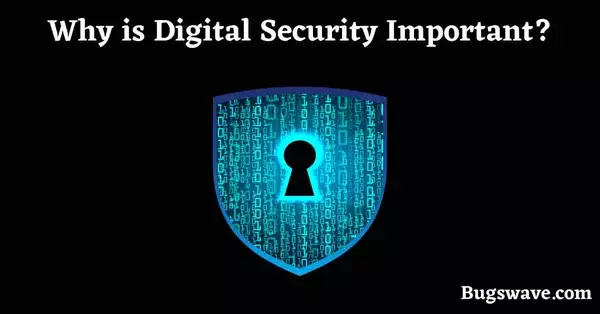In this article, we will talk about why digital security is important and how to ensure it.
In the digital era, we rely on the internet for almost everything, from work tasks to writing academic assignments.
Whether we are storing data, managing finances, purchasing outfits, or entertaining, we use digital devices more than ever before.
Ensuring the security of your digital data is paramount because it protects all kinds of information from theft and loss. But what is the right way to secure your data and devices?
In this article, we will cover some significant topics, such as digital security, why it is important, the ways to safeguard your data on digital devices, and more.
Table of Contents
What is digital security?
If you are well aware of cybersecurity, understanding digital security is easier for you. While cybersecurity protects your computer system and networks from online vulnerabilities, digital security is more about protecting your data and devices from unauthorized access.
In short, digital security protects information by ensuring robust safety protocols are in place; cybersecurity protects infrastructure, networks, and data.
Digital security minimizes the risks of inside threats or human errors, which are usually the cause of many data breach events.
Why is digital security important?

Safeguarding data and devices is important for individuals and organizations, regardless of the profession or industry you operate in. You can password-protect a zip file or assign strong passwords to your online accounts to ensure the security of the data stored within them.
In addition, consider enabling multi-factor authentication to ensure better security. This is like adding a second layer of security to the data. If your password credentials are compromised, no one will ever be able to log into your account since the OTP is also required.
Organizations worldwide are legally obliged to protect their consumer data from being lost or stolen.
Data security is crucial to protecting the company’s reputation, as security vulnerabilities can compel customers to lose trust in the organization’s credibility.
By ensuring digital security, individuals can safeguard their data from prying eyes. On the other hand, organizations can keep their reputations clean and set themselves up for a competitive edge. There are many ways you can ensure improved security over data and networks.
- Encryption of Data
Data encryption is the technique to scramble data and prevent it from being accessed. The data is encrypted using an algorithm and can only be decrypted using a valid decryption key. This technique ensures that the data is only read by an authorized recipient.
In the event of a data breach, even if the hackers gain access to data, they won’t be able to read it. Encryption is one of the best ways to secure data as it moves through the network.
- Password Protection
Assigning strong passwords to online and offline accounts is the most viable way to protect information from slipping into the wrong hands. Make sure to assign alpha-numeric passcodes and special characters to make them difficult to decode.
In addition, enable multi-factor authentication as an extra layer of security. This way, you must type in a one-time password (OTP) along with the password to sign in to your account.
- Data Masking and resilience
If you are looking for organizational data security, masking is one of the ways you can proceed. Data masking is the method of hiding sensitive information by replacing or obscuring specific characters, numbers, and letters.
On the other hand, organizations can mitigate the security risks associated with data by creating backups and copies of files. Data backups are particularly useful during ransomware attacks.
Why is digital security important?

In recent years, instances of data breaches have grown significantly. New ways of gaining unauthorized access to data have been introduced that have a devastating impact on personal and organizational data.
With the rising digital security risks, it becomes important to protect data and social media accounts. Some of the most common security risks that can lead to data breaches include:
- Malware Attacks
Malware is a kind of software that infects your computer and makes your files and apps inaccessible. If some programs don’t seem to work properly, run an antivirus app to scan your computer and detect the malicious items.
- Phishing Attacks
When you receive any email from an unknown sender, avoid opening it or clicking any link or attachment included in the message. Clicking on suspicious links can redirect you to an illegitimate website that can cost you your personal data and compromise your financial details.
- Distributed Denial of Service Attack
Distributed Denial of Service (DDoS) attacks are rare, but organizations usually have to deal with them. DDoS attacks prevent users from accessing their computers or a service. The hackers flood the network with unusual traffic, damaging it beyond repair.
Share with others